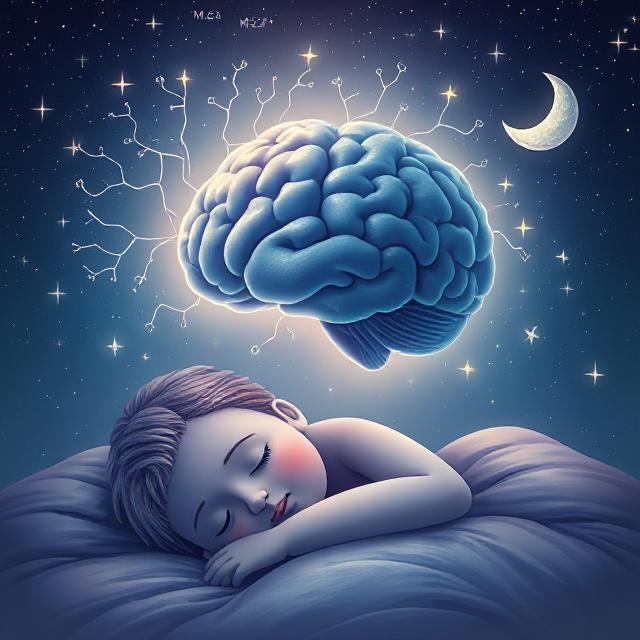
Table of Contents
Roles of Magnesium in Sleep and Learning
Magnesium is often referred to as natureâs tranquilizerâbut its benefits go far beyond relaxation. This essential mineral plays a central role in deep sleep, memory formation, focus, and stress resilience, making it critical for both restorative rest and optimal cognitive performance.
In a world of chronic stimulation, fragmented sleep, and over-supplementation, understanding the true roles of magnesium in sleep and learning can elevate your mental clarity and protect long-term brain health.
đ§ Magnesiumâs Neurological Superpowers
Magnesium is involved in over 300 enzymatic reactions, many of which are directly tied to brain function. In fact, itâs one of the most neuroprotective and memory-enhancing minerals in the human body.
Magnesiumâs primary brain benefits:
- Regulates NMDA receptors, key to synaptic plasticity (learning)
- Modulates GABA, the brainâs main inhibitory neurotransmitter (calm + focus)
- Helps maintain myelin sheath integrity, crucial for neuron signaling
- Supports glucose metabolism and ATP production in brain cells
- Balances stress response via the HPA axis
A deficiency in magnesium can manifest as poor memory, anxiety, irritability, and insomniaâoften without people realizing itâs mineral-related.
đ Deep Sleep Starts With Magnesium
The brain doesnât just rest at nightâit repairs. Magnesium acts as the gatekeeper of deep, slow-wave sleep, where neuroplasticity, memory consolidation, and cellular repair peak.
Magnesium supports:
- Melatonin regulation: Magnesium assists in converting serotonin to melatonin, aligning sleep-wake cycles
- GABA activation: Calms the nervous system and quiets mental chatter before bed
- Cortisol control: Prevents overstimulation by dampening the stress response
Without sufficient magnesium, the nervous system remains too activated to transition into deep, restorative states, resulting in light, fragmented sleep.
Common symptoms of low magnesium at night:
- Trouble falling asleep
- Waking up between 2â4 a.m.
- Restless legs or muscle cramps
- Jaw clenching or teeth grinding
- Vivid dreams or nightmares
Optimizing magnesium levels supports stable circadian rhythms, lowers nighttime cortisol, and strengthens your brainâs ability to recover during sleep.
𧏠Learning, Neuroplasticity, and Magnesium
Learning isnât just about cramming factsâitâs about forming new synaptic connections, adapting to feedback, and recalling information under pressure. Magnesium is essential to this process.
Key mechanisms:
- Enhances long-term potentiation (LTP)âthe foundation of memory encoding
- Increases BDNF (brain-derived neurotrophic factor)âa growth factor for neurons
- Protects neurons from excitotoxicity caused by overstimulation (especially from glutamate)
One specific form, Magnesium L-threonate, has been shown in studies to cross the blood-brain barrier more efficiently and increase synaptic density in the hippocampus, the brainâs learning center.
Magnesium deficiency is linked with reduced learning speed, poor test performance, and increased cognitive fatigue.
đ Stress, Learning, and Magnesium Depletion
The very act of studying under stress drains magnesium faster than usual.
Why?
- Stress increases cortisol and adrenaline, both of which use up magnesium for regulation
- Magnesium helps modulate glutamate, the excitatory neurotransmitter that drives overthinking and anxiety
- Chronic depletion leads to reduced resilience, shallow sleep, and brain fog
High cognitive load (like back-to-back tasks, multi-platform studying, or exam prep) increases your bodyâs need for magnesium. Without replenishment, focus collapses.
𼌠Best Dietary Sources of Magnesium
Magnesium is often depleted from modern soil and food processing, but whole foods remain the best source for bioavailable magnesium.
Top magnesium-rich foods:
- Pumpkin seeds
- Dark leafy greens (spinach, chard)
- Avocados
- Almonds and cashews
- Black beans and lentils
- Dark chocolate (70%+ cacao)
- Bananas
- Halibut and mackerel
Cooking tip: Light steaming preserves more magnesium than boiling, which leaches minerals into water.
Aim for 350â500 mg/day through diet, increasing slightly during periods of intense mental effort or poor sleep.
đ Supplementation: Best Forms for Brain and Sleep
If you need to supplement, not all forms are equal. Magnesium types vary in absorption, target organs, and side effects.
| Form | Best For | Notes |
|---|---|---|
| Magnesium L-threonate | Learning, memory | Crosses blood-brain barrier |
| Magnesium glycinate | Sleep, anxiety | Highly absorbable, calming |
| Magnesium citrate | Constipation | May cause loose stools |
| Magnesium malate | Energy production | Best for daytime, physical recovery |
| Magnesium chloride | General replenishment | Used topically or orally |
| Magnesium oxide | Poorly absorbed | Often used as a cheap filler |
Evening dosing (30â90 minutes before bed) is ideal for glycinate or L-threonate to support deep sleep and next-day focus.
âąď¸ When to Prioritize Magnesium
| Time of Day | Why It Helps |
|---|---|
| Morning | Calms stress hormones and supports alertness |
| Pre-study | Enhances focus by balancing excitatory neurotransmitters |
| Evening | Prepares nervous system for deep sleep |
| Post-stress | Restores mineral loss from cortisol spikes |
Pairing magnesium with protein-rich meals (containing tryptophan) may further enhance serotonin and melatonin pathways.
â ď¸ Signs You Might Need More Magnesium
If youâre experiencing any of the following, magnesium could be a missing piece:
- Racing mind at bedtime
- Difficulty absorbing new concepts
- Mental fatigue despite good sleep
- Poor recovery from study or workouts
- Headaches or eye twitching
- High sensitivity to light or noise
- Cravings for chocolate or salt
Many signs of âoverwhelmâ or âattention issuesâ are actually mineral stress signals.
â Final Reflection: Magnesium as a Mental Recovery Tool
The brain isnât just a machine that runs on willpowerâitâs a living network shaped by rhythm, rest, and resource availability. Magnesium is a foundational resource.
By supporting GABAergic calm, synaptic plasticity, melatonin regulation, and neuronal energy, magnesium becomes both a study enhancer and a sleep deepener.
Donât ignore the quiet minerals.
When magnesium is right, your mind hums and your rest deepens.
Learn, sleep, and rechargeâon a stronger foundation.
